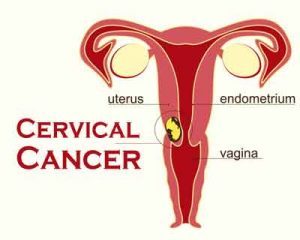- Home
- Editorial
- News
- Practice Guidelines
- Anesthesiology Guidelines
- Cancer Guidelines
- Cardiac Sciences Guidelines
- Critical Care Guidelines
- Dentistry Guidelines
- Dermatology Guidelines
- Diabetes and Endo Guidelines
- Diagnostics Guidelines
- ENT Guidelines
- Featured Practice Guidelines
- Gastroenterology Guidelines
- Geriatrics Guidelines
- Medicine Guidelines
- Nephrology Guidelines
- Neurosciences Guidelines
- Obs and Gynae Guidelines
- Ophthalmology Guidelines
- Orthopaedics Guidelines
- Paediatrics Guidelines
- Psychiatry Guidelines
- Pulmonology Guidelines
- Radiology Guidelines
- Surgery Guidelines
- Urology Guidelines
Blueberry extract gives boost to cervical cancer therapy

According to the Centers for Disease Control and Prevention, approximately 12,000 women in the United States are diagnosed with cervical cancer each year. One of the most common treatments for cervical cancer is radiation. While radiation therapy destroys cancer cells, it also destroys nearby healthy cells. University of Missouri School of Medicine researchers studied in vitro human cancer cells to show that combining blueberry extract with radiation can increase the treatment's effectiveness.
"Radiation therapy uses high-energy X-rays and other particles such as gamma rays to destroy cancer cells," said Yujiang Fang, M.D., Ph.D., a visiting professor at the MU School of Medicine and lead author of the study. "For some cancers, such as late-stage cervical cancer, radiation is a good treatment option. However, collateral damage to healthy cells always occurs. Based on previous research, we studied blueberry extract to verify it could be used as a radiosensitizer."
Radiosensitizers are non-toxic chemicals that make cancer cells more responsive to radiation therapy. In a previous study, Fang and his research team showed that resveratrol, a compound in red grapes, could be used as a radiosensitizer for treating prostate cancer. Blueberries also contain resveratrol.
"In addition to resveratrol, blueberries also contain flavonoids," said Fang, who also has appointments as an academic pathologist and assistant professor of microbiology and immunology at Des Moines University in Iowa. "Flavonoids are chemicals that may have antioxidant, anti-inflammatory and antibacterial properties."
The researchers used human cervical cancer cell lines to mimic clinical treatment. The cell lines were divided into four groups that included a control group, a group that received only radiation, a group that received only blueberry extract, and a group that received both radiation and the extract.
"Our team used three different measures to confirm results of the study," Fang said. "Radiation decreased cancer cells by approximately 20 percent. Interestingly, the cell group that received only blueberry extract had a 25 percent decrease in cancer. However, the biggest decline in cancer cells occurred in the radiation and extract group, with a decrease of about 70 percent."
Fang explained that the mechanism that makes blueberry extract a radiosensitizer also reduces the abnormal explosion of cell growth ? which is what cancer is.
"Cancer cells avoid death by remodeling themselves," Fang said. "Along with reducing cell proliferation, the extract also 'tricks' cancer cells into dying. So it inhibits the birth and promotes the death of cancer cells."
Fang said an animal study is the next step to confirm that his team can achieve the same results.
"Blueberries are very common and found all over the world," Fang said. "They are readily accessible and inexpensive. As a natural treatment option for boosting the effectiveness of existing therapies, I feel they would be enthusiastically accepted."

Disclaimer: This site is primarily intended for healthcare professionals. Any content/information on this website does not replace the advice of medical and/or health professionals and should not be construed as medical/diagnostic advice/endorsement or prescription. Use of this site is subject to our terms of use, privacy policy, advertisement policy. © 2020 Minerva Medical Treatment Pvt Ltd